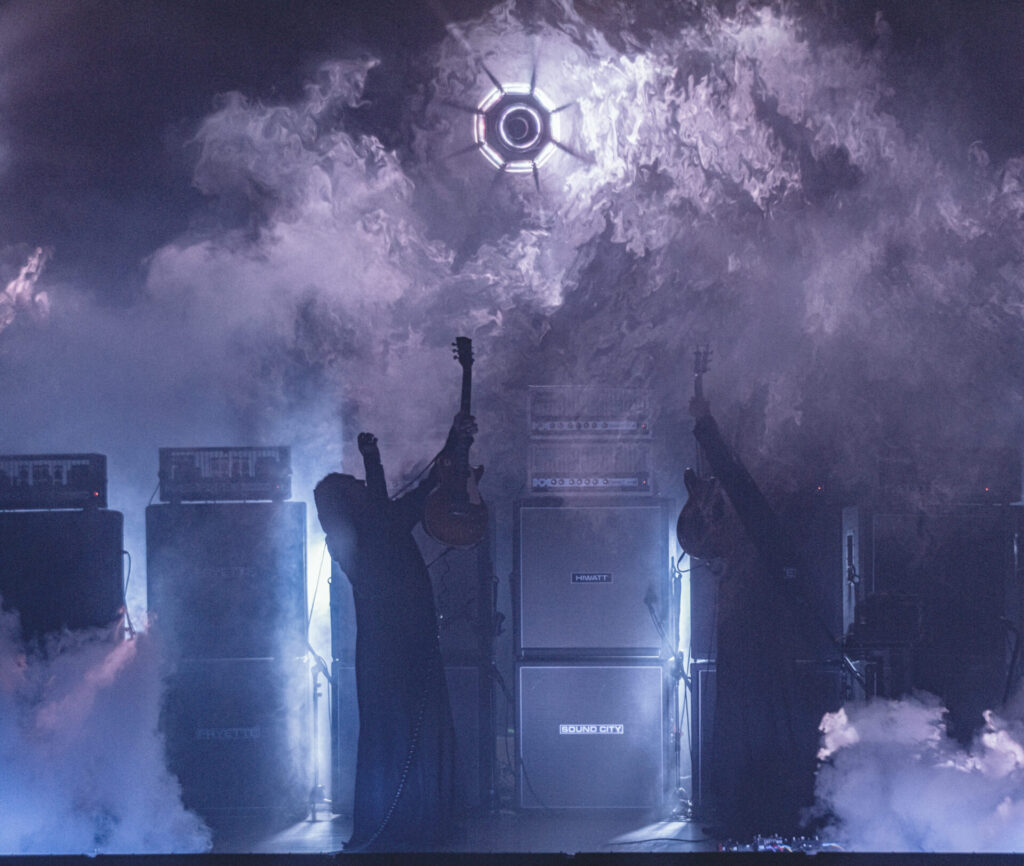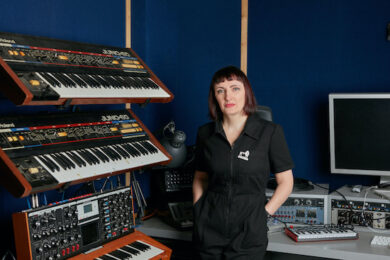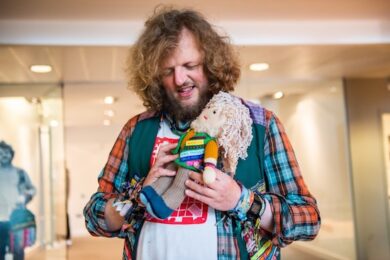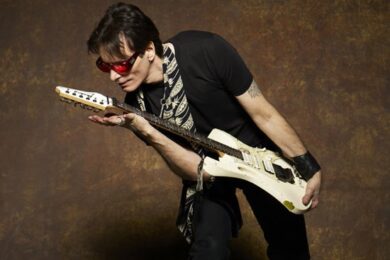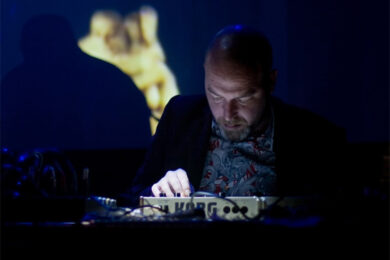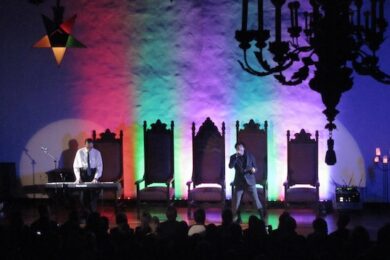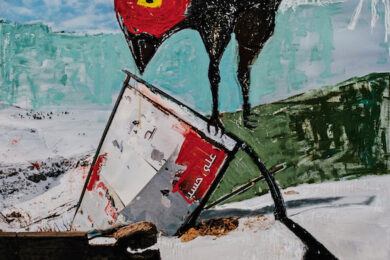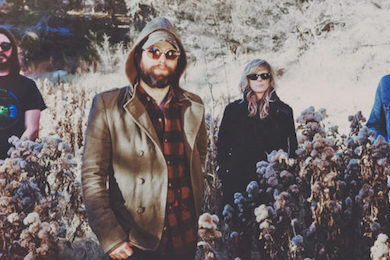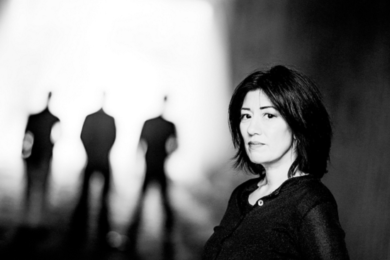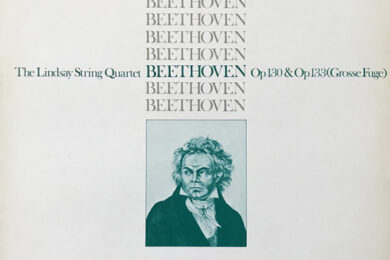This year’s installment of the venerable Unsound festival found a New York on the edge. As the nights unfolded across a variety of locations throughout the city, bringing in a welcome array of global experimental and electronic artists, the mood in the crowd was, I’d say, nervous: rooms full of listeners who’d just like to focus on what Piotr Kurek was doing with that clarinet but were also exhausted but unnerved by the recent, unsurprising national electoral embrace of smug authoritarianism and sadly unsurprised by the level of support, even here. Of people breathing in fumes as the city’s parks catch fire thanks to an unprecedented drought; unsure if the MTA will manage to run the trains successfully to get us way up north to Ridgewood, way downtown to the Bowery, way west to Lincoln Center, to a distant coast of central Brooklyn; worried about money as suddenly a drink is $20 and your wage is less than it was when Unsound first launched its unparalleled lineups of performances here in 2010.
Which is all to say, festivals have a hard time getting oversubscribed, under-resourced New Yorkers to pay attention at the best of times, and this is very far from that. And yet. At the opening night on Thursday, co-curated by Unsound Artistic Director Mat Schulz and the way-off-the-grid New Jersey camping party Dripping, the crowd gradually stopped gossiping about the tenuous future of the venue itself, Nowadays, a cozy indoor/outdoor complex that’s long served as a nightlife hub — and let the lineup into their ears. Bela opened little wind tunnels that became scratchy-throat whispers over some industrial drums; 2K88 collapsed the past and present of bass music into a very good time; Atrice swelled some rhythms and noise into crests which pulled back into halftimes, like undertow. Tygapaw heroically just went fucking hard in partnership with VTSS, for a a riot of clean-lined techno and filthy basslines. Shyboi and Bobby Beethoven lightened up but only a little, and the crowd hung in there.
The next night, those of us who arrived early enough to get in filed into a strange corner of Lincoln Center called the David Rubenstein Atrium, a rather narrow but very tall sort of enclosed hallway hidden between all the Modernist landmarks. A brief 3D installation by Mariusz Szypura looked intriguing but was almost impossible to see in the awkward room, despite the handy 3D glasses. But the charm of Piotr Kurek, who played clarinet and flute with an ensemble of bass, electronics, and harp, was undeniable. And the evolution of Chuquimamani-Condori from the conceptual chop-and-screw of earlier work as Elysia Crampton into a new mix of traditional Pakajaqueño Aymara music and shoegaze, dub, and breaks remains among the most exciting prospects in contemporary music — especially performed, as it was this night, upon a keytar utterly free of irony and full of romance, with a tip of a white cowboy hat. The sound of a swoon, and of possible futures.
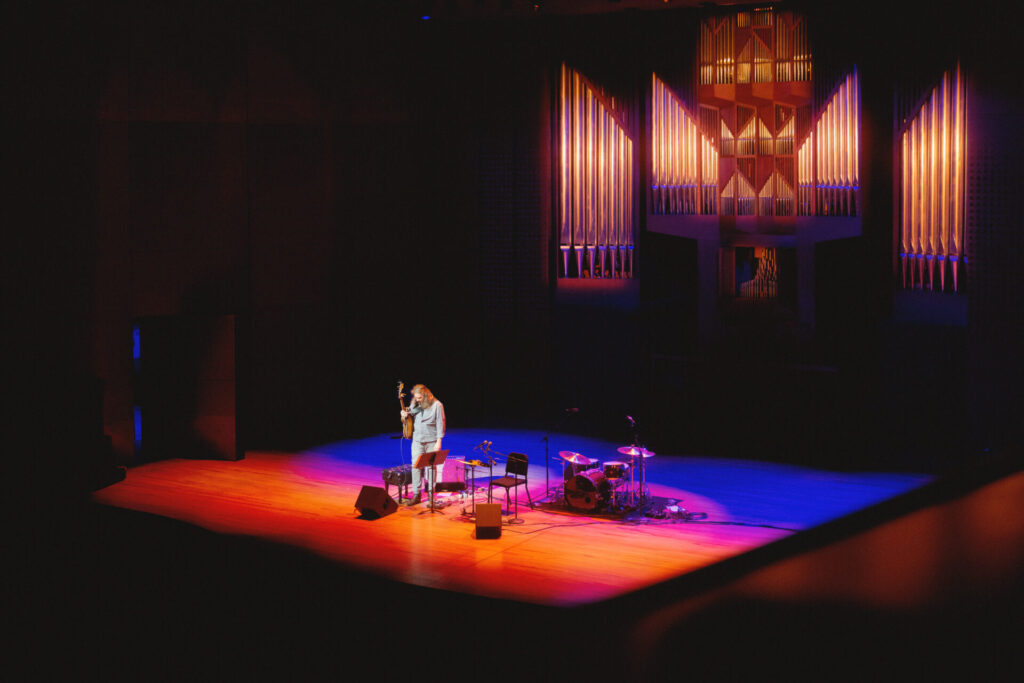
The pipe organ in Lincoln Center’s Scandi-chic Alice Tully Hall tried hard to pull focus from Saturday night’s lineup; it loomed in wait behind Raphael Roginski as he coaxed glints of his recently reissued album Plays John Coltrane & Langston Hughes from his guitar, with some help from Jim White on drums and Armitha Kidambi on earnest vocals. Then Kali Malone, no stranger to imposing instruments, rose to the organ’s challenge and even brought back-up, including a clear-voiced quartet of a choir, a five-person brass ensemble and canine companion (who sat like a very good dog through the performance and yawned at the curtain call), and Stephen O’Malley, who helped Malone ease a hypnotizing roar from the organ. It was all to recreate Malone’s All Life Long album, and in fact bettered the recording in coherence and verve.
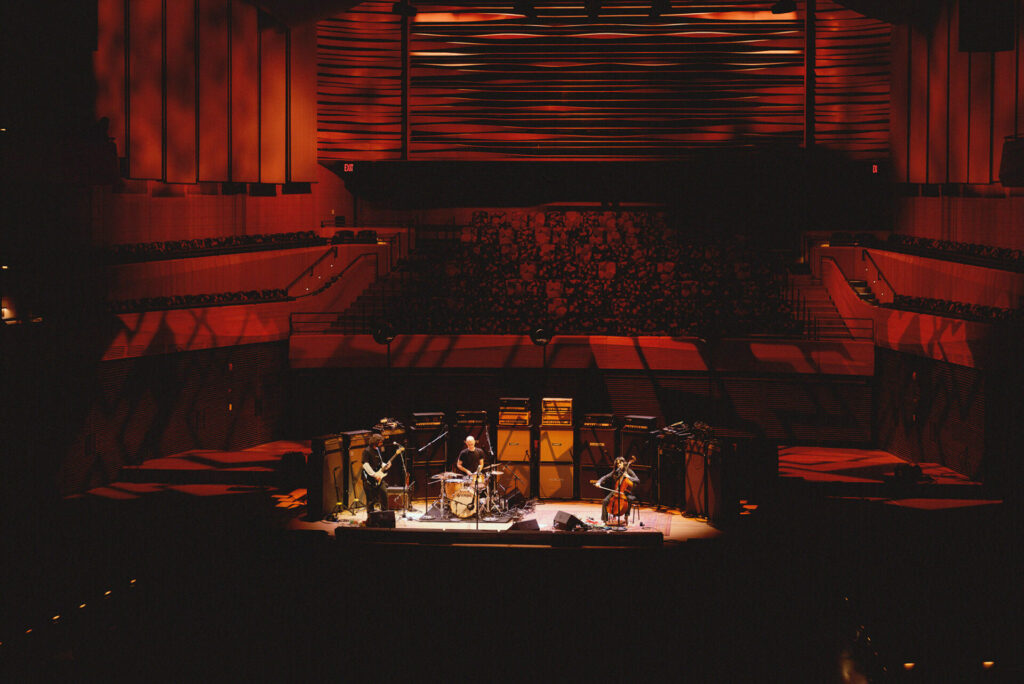
Opening for a band like Sunn O))) has got to be intimidating, but Mexico City’s great Mabe Fratti (pictured above) didn’t seem to sweat it, as the band assembled their amplified cello, guitar, and drum kit before O’Malley and Greg Anderson’s wall of amps and cranked out their own inimitable amalgamation of prog, crunch, and breezy post-Tropicalia to a very receptive crowd. And then the Lincoln Center ushers in noise isolation earbuds seated the stragglers and the fog machines filled the hall. Sunn O))) used feedback like a brush on the skin of the tony Wu Tsai theatre at David Geffen hall. The roar was stunning in all senses, including visually, thanks to their subtle, synched band choreo, purple lasers, and a holy trinity of white lights on pedestals with centers like anuses or eclipses. The choice here to succumb to the ugliest of sounds made me think of how often brutal noise fills our ears without consent, on the subways and on the news and everywhere. Like the noise of cops speeding down the Bowery on their way to something awful, as a few of us gathered in the famous concrete bunker-cum-community hub once home to William S. Burroughs and John Giorno and now a stage for Giorno Poetry Systems events. Unsound wrapped up here on Monday night, with journalist Andy Battaglia in conversation with O’Malley and Malone. “There’s a transference that happens with the audience,” O’Malley said, “which is joyful. The roots of Sunn’s music could be coming from dark music, but it brings so much enriching, meaningful reaction. I guess we’re at a point where society dictates that what happens at a New York philharmonic concert hall is songs heavily distorted, heavily amplified.” The small crowd laughed in appreciation, wondering how long it will last.

